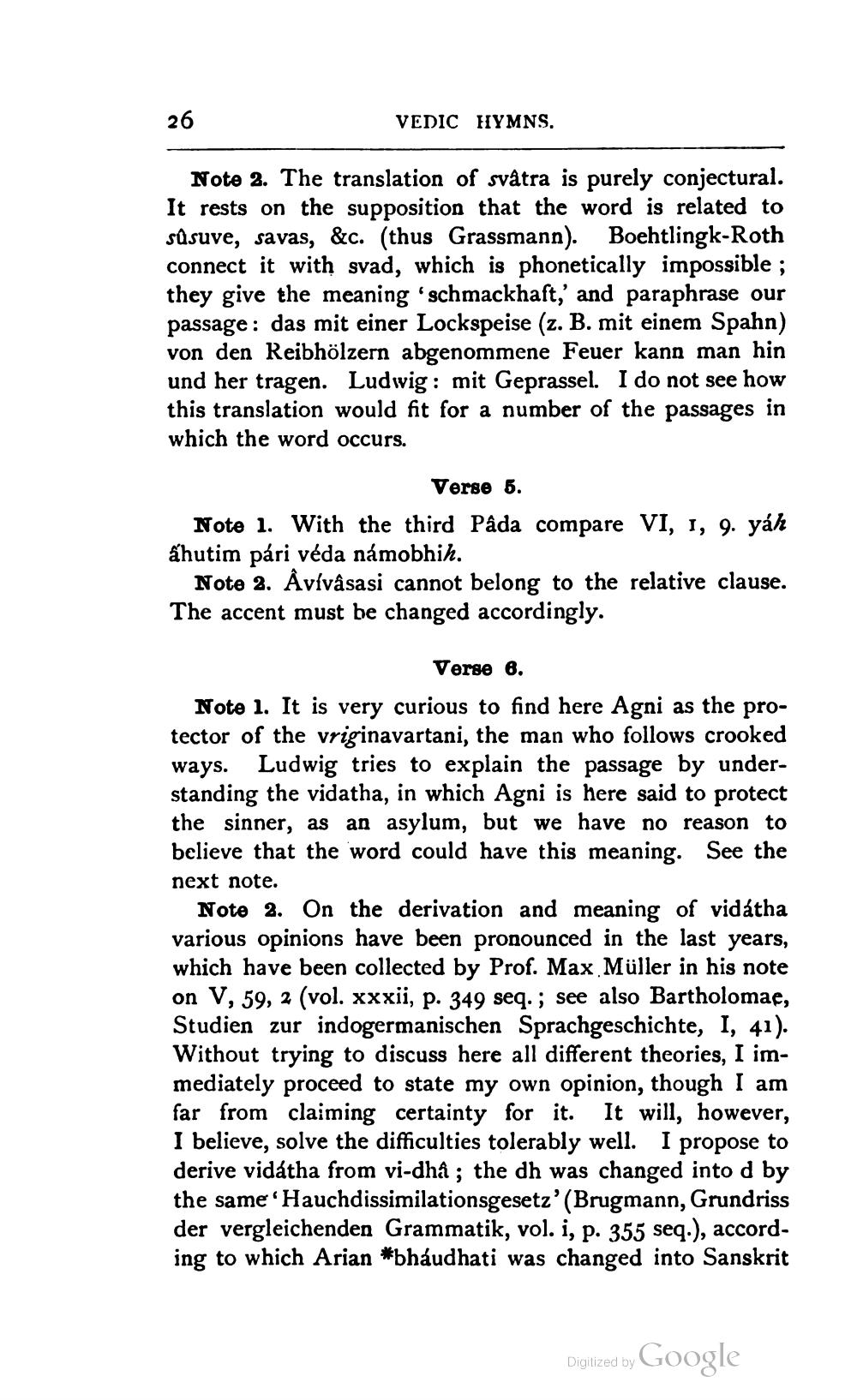________________
26
VEDIC HYMNS.
Note 2. The translation of svatra is purely conjectural. It rests on the supposition that the word is related to sûsuve, savas, &c. (thus Grassmann). Boehtlingk-Roth connect it with svad, which is phonetically impossible ; they give the meaning 'schmackhaft,' and paraphrase our passage: das mit einer Lockspeise (z. B. mit einem Spahn) von den Reibhölzern abgenommene Feuer kann man hin und her tragen. Ludwig : mit Geprassel. I do not see how this translation would fit for a number of the passages in which the word occurs.
Verse 5. Note 1. With the third Pâda compare VI, 1, 9. yah áhutim pári véda námobhih.
Note 2. Åvívásasi cannot belong to the relative clause. The accent must be changed accordingly.
Verse 6. Note 1. It is very curious to find here Agni as the protector of the vriginavartani, the man who follows crooked ways. Ludwig tries to explain the passage by understanding the vidatha, in which Agni is here said to protect the sinner, as an asylum, but we have no reason to believe that the word could have this meaning. See the next note.
Note 2. On the derivation and meaning of vidátha various opinions have been pronounced in the last years, which have been collected by Prof. Max Müller in his note on V, 59, 2 (vol. xxxii, p. 349 seq. ; see also Bartholomae, Studien zur indogermanischen Sprachgeschichte, I, 41). Without trying to discuss here all different theories, I immediately proceed to state my own opinion, though I am far from claiming certainty for it. It will, however, I believe, solve the difficulties tolerably well. I propose to derive vidátha from vi-dhå; the dh was changed into d by the same 'Hauchdissimilationsgesetz' (Brugmann, Grundriss der vergleichenden Grammatik, vol. i, p. 355 seq.), according to which Arian *bháudhati was changed into Sanskrit
Digitized by Google




